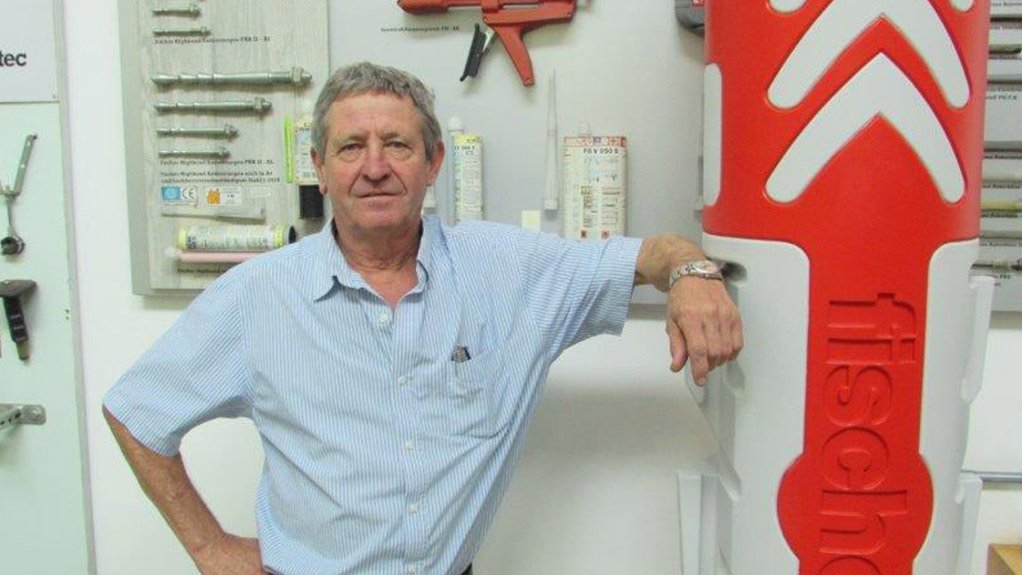
Available in South Africa exclusively from leading distributor Upat, fischer has used pure polyamide material for over 50 years, with constant composition, to ensure that the material lasts for decades, Upat Technical Manager Kevin Owen explains.
Nylon is the generic designation for a family of synthetic polymers, based on aliphatic or semi-aromatic polyamides. Polyamide is a high-class technical plastic that provides for high quality and safety requirements, such as for vehicle manufacturing, engine building, fixing technologies, construction, and electrical engineering.
Polyamide absorbs humidity from its surroundings in its molecular structure (± 3%), which contributes to its high impact strength and abrasion resistance. “If you take a nylon plug and a plastic plug and place both in a glass of water, the plastic plug floats, while the nylon plug sinks. This is because the nylon is denser, and therefore a much more durable and stronger material,” Owen points out.
Nylon plugs from fischer offer, on average, a 50% higher holding force than their plastic equivalents. The high mechanical strength and stiffness of the polyamide material allows the plugs to handle high loads due to their expansion force and reduced friction.
The good damping characteristics of polyamide translate into a high shock-absorption capability. In addition, nylon can withstand far more heat than plastic, which means that these plugs will not deform from the heat produced by friction when screws are driven into a wall, for example.
“By turning the screw into the plug, the polyamide adapts to the thread, thus reducing the setting time. The durability of polyamide, and the geometrical construction of the plug itself, conveys to the user that the plug is set firmly,” Owen elaborates. It is critical that façade fixings are as firm as possible, as these are not only load-bearing, but are also exposed to added vibration from wind.
Furthermore, polyamide remains viscoplastic at low temperatures (as low as minus 40 °C), and dimensionally stable at high temperatures (of up to 80 °C). Polyamide fixing elements are resistant to various weathering conditions, natural ageing, rust, rot, and an array of chemical substances.
Besides being a well-known material for fixings, polyamide is also ideal for casings and enclosures such as electrical wiring. This is due to polyamide’s electro-installation properties, which means that it does not conduct electricity, thereby reducing any potential fire risk.
Another major advantage of polyamide over traditional fixing materials is that it is more UV-resistant than plastic. Unaffected by continuous sunlight, it will last significantly longer than plugs made from plastic, meaning that nylon plugs are far more durable and cost-effective in the long run.